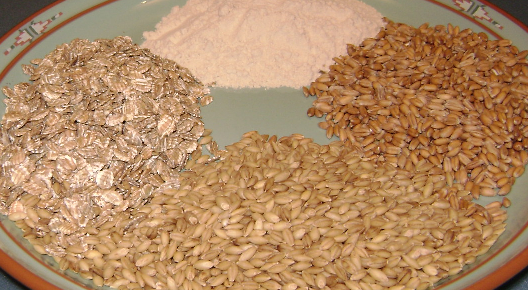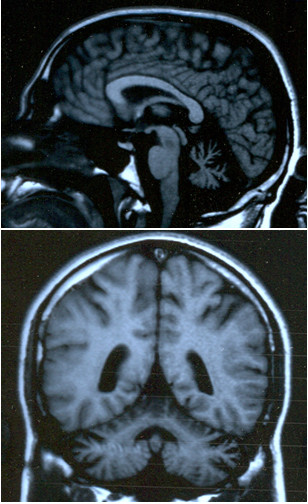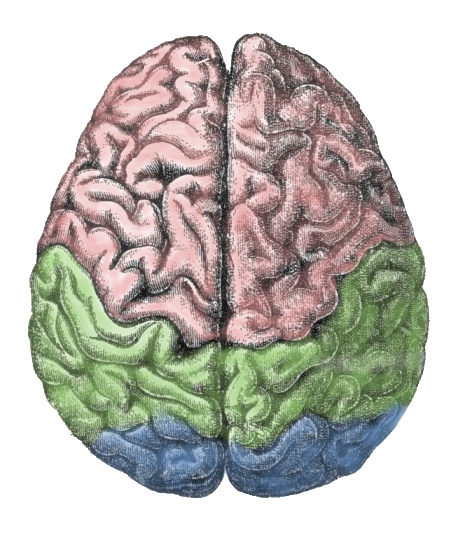When it comes to improving bone health, a Florida State University researcher has found a simple proactive solution to help prevent fractures and osteoporosis – eating dried plums. The study, titled “Comparative effects of dried plum and apple on bone in postmenopausal women,” was published in the August 2011 issue of the British Journal of Nutrition.
“Over my career I have tested numerous fruits, including figs, dates, strawberries and raisins and not one of them come anywhere close to having the effect on bone density that dried plums, or prunes have,” said Bahram H. Arjmandi, Florida State’s Margaret A. Sitton Professor and chairman of the Department of Nutrition Food and Exercise Sciences in the College of Human Sciences. “All fruits and vegetables have a positive effect on nutrition, but in terms of bone health, that particular food is exceptional.”
Arjmandi and a group of researchers from Florida State and Oklahoma State University treated two groups of postmenopausal women. Over a 12-month period, the first group, consisting of 55 women was instructed to consume 100 grams of dried plums (about 10 prunes) each day, while the 2nd group, a comparative control group of 45 women, was told to consume 100 grams of dried apples. All the participants also received daily doses of calcium (500 milligrams) and vitamin D.
The researchers found that the group that consumed dried plums had higher bone density in the ulna and spine, in comparison to the control group that ate dried apples. This, according to Arjmandi, was due in part to the ability of dried plums to suppress the rate of bone resorption, or the breakdown of bone, which tends to exceed the rate of new bone growth as people age.
From the Desk of Dr. Karl R.O.S. Johnson, DC.....
New Research Shows Eating Dried Plums Helps Prevent Fractures and Osteoporosis
Posted by Dr. Karl R.O.S. Johnson, DC on Mon, Oct 31, 2011
Topics: osteoporosis, prunes, bone health
Halloween - The Beginning of The Sickness Season - How to Avoid It
Posted by Dr. Karl R.O.S. Johnson, DC on Sun, Oct 30, 2011
For over 20 years now, I have consisitently seen a significant rise in patients bringing in children with respiratory or other illness beginning with the week after Halloween. Often behavioral changes are noted too.
Topics: Immune System, Dr. Karl R.O.S. Johnson, Halloween, sugar, upper respiratory illness
Key Factor in Developing Other Autoimmune Diseases - Duration of Gluten Exposure
Posted by Dr. Karl R.O.S. Johnson, DC on Sun, Oct 23, 2011
The longer sensitive individuals eat gluten, the more likely they are to develop other autoimmune diseases
A 1999 landmark study published in Gastroenterology found that the duration of exposure to gluten in celiac disease patients affects the risk of developing other autoimmune diseases. The finding made age at diagnosis an important factor in the overall health of patients with celiac disease.
For the study, an Italian research team screened 909 patients with celiac disease for other autoimmune diseases, including IDDM (Insulin-Dependent Diabetes Mellitus), DH (Dermatitis herpetiformis), Hashimoto’s thyroiditis or Graves’ disease, autoimmune hepatitis, alopecia, atrophic autoimmune gastritis, connective tissue disease (rheumatoid arthritis, systemic lupus erythematosus, dermatomyositis, scleroderma, or Sjogren’s disease), psoriasis, Addison’s disease, unexplained cerebellar ataxia, epilepsy with cerebral calcification, or immune anemia, neutropenia, or thrombocytopenia. They then compared the prevalence of these conditions in three different subgroups, which were separated based on when the patient was diagnosed with celiac disease (before age 2, between ages 2 and 10, and after age 10).
The team found that the prevalence of the other conditions was highest in the subgroup of patients diagnosed after age 10. Similarly, patients diagnosed between ages 2 and 10 had a higher rate of other conditions than those diagnosed before age 2. This suggests that the prevalence of autoimmune conditions increases with increasing age at diagnosis of celiac disease (ie, increasing duration of exposure to gluten).
The researchers’ chart below demonstrates the frequency of developing other autoimmune diseases.
Topics: autoimmune, Dr. Aristo Vojdani, gluten, celiac disease, Dr. Karl R.O.S. Johnson
Misbranded Gluten Containing Beef Recalled Due to Undeclared Allergen
Posted by Dr. Karl R.O.S. Johnson, DC on Sat, Oct 22, 2011
Geez, it's so hard to trust the food industry. Many companies just keep raising the bar on how low they will stoop to save a buck - not concerned about the end consumer's health and well-being. Meat glue, turkey in beef - what the heck else will they think of. You've heard of turducken (stuffing a turkey with a duck)...perhaps they should call this abomination burky! Thank goodness this company got caught...but how many don't. Get to know who you purchase your food from. Buy from the local amish butcher store if you have one. We are lucky as we have Hefling's Amish Farm Market her in the Mt. Clemens area and Peacock's Poultry Farm in the Troy area. Both reputible source for many food products. Well, read on and get mad!
Topics: gluten, Undeclared Allergen, Misbranding, Beef
How Gluten Intolerance Can Cause Unstable Gait
Posted by Dr. Karl R.O.S. Johnson, DC on Tue, Oct 18, 2011
The body of research surrounding gluten sensitivity grows every year alerting the medical community and people suffering from a wide range of symptoms to possible connections between seemingly untreatable medical conditions and gluten intolerance. Of note recently is the growing recognition of gluten sensitivity and gluten ataxia, a neurological condition affecting balance and coordination.
Beyond Indigestion
For decades, the medical profession has limited diagnosis of gluten intolerance to those patients who tested positive for celiac disease via an antigliadin antibodies test or endoscopy. Those patients who tested negative on these tests were told they didn't have celiac disease (CD) and that gluten was not their problem. The traditional medical mindset is celiac disease manifests primarily in gastrointestinal distress. Modern research shows that for every symptomatic patient with CD there are eight patients with CD with no GI symptom
Now we know, however, that gluten intolerance covers an entire range of symptoms including celiac disease, dermatitis herpetiformis (skin conditions associated with gluten sensitivity such as psoriasis or eczema), thyroid irregularities and other inflammatory and neurological conditions. In fact, a good number of people with gluten sensitivities don't have any gastrointestinal symptoms at all leading some doctors to disregard gluten as a root cause of symptoms.
In all cases, however, the body attacks gluten and resulting in a wide range of symptoms. Gluten ataxia is one of those symptoms caused by gluten sensitivity that may or may not be seen in conjunction with gastrointestinal distress.
Diagnosing Ataxia
By definition, ataxia is a condition affecting your muscle coordination during voluntary movements like walking or using your hands. Ataxia can also affect speech, your eyes and your swallowing reflex. Those who suffer from ataxia may find it difficult to grasp objects, walk up and down stairs, balance or successfully navigate doorways without running into them. On the extreme end, ataxia can drive patients to wheelchairs, prevent people from working or even interfere with the body's swallowing reflex.
Diagnosing gluten ataxia has been slow. Most often, doctors look for other underlying symptoms of ataxia including head trauma, stroke or multiple sclerosis. Additionally, few in the medical community have embraced the notion that a person without gastrointestinal symptoms could have a gluten sensitivity manifesting in other ways.
The work of Dr. Marios Hadjivassiliou in researching gluten ataxia has played a key role in encouraging patients to ask their doctors about this manifestation of gluten intolerance. Dr. Hadjivassiliou has documented correlations between ataxia and a heightened immune response to gluten. His work also pushes doctors to look beyond the gut when diagnosing gluten sensitivities.
Patients with unexplained coordination and balance problems should ask their doctor about the possibility of gluten ataxia whether they suffer from other known manifestations of gluten sensitivity or not.
Seeking a Cure
Eating a strict gluten free lifestyle can alleviate many of the symptoms of ataxia, just as the lifestyle can help those who suffer from celiac disease and skin conditions caused by gluten. It is also important for those who suffer from gluten ataxia to work with someone in the medical field who understands their diagnosis and will work with them on the root cause of the ataxia. The brain heals much more slowly than the intestinal tract and those with ataxia may take longer to heal and see a true remission of symptoms than those with primarily skin or bowel symptoms. A doctor specializing in gluten sensitivities and who takes a holistic approach to medicine is best suited to working with sufferers of ataxia.
Hope and help is out there for the growing number of people discovering the extent of gluten sensitivity including balance and coordination challenges stemming from gluten ataxia. The key is going to a doctor who knows how to properly test you so the root cause of your health challenge can be found.
Topics: autoimmune, Cyrex Labs, gluten sensitivity, Dr. Karl R.O.S. Johnson DC, Ataxia, Dr. Aristo Vojdani
Results of Medication Studies Published in Leading Medical Journals are Misleading and Confusing
Posted by Dr. Karl R.O.S. Johnson, DC on Sat, Oct 15, 2011
Studies about medications published in the most influential journals are frequently designed in a way that yields misleading or confusing results, according to a recent study conducted by the medical schools of UCLA and Harvard.* The journals used for this study were NEJM, JAMA, The Lancet, Annals of Internal Medicine, the British Medical Journal and the Archives of Internal Medicine.
Topics: Medical Studies Misleading, Blood Pressure
The Amazing Brain: 10 Facts About Your Brain
Posted by Dr. Karl R.O.S. Johnson, DC on Tue, Oct 11, 2011
- Did you know that your brain accounts for less than 2% of your body weight, yet uses roughly 20% of our daily calories?
- Your brain is a picky eater. It demands a constant supply of glucose, primarily obtained from carbohydrates like fruits, veggies and grains. Sugary snacks provide the wrong kind of glucose, and damages cells everywhere in the body – including the brain.
- A study at Aston University in England suggests that more frequent, but smaller meals help the brain work best. They found that the brain works best with about 25 grams of glucose circulating in the system – about the amount found in a banana.
- The brain is 60% fat. Essential fatty acids – the Omega 3’s are brain food!
- 20% of our blood circulation is devoted to the brain.
- Don’t eat too much! A study at the University of Wisconsin found that there is an immune response to too much food and may cause cognitive deficit.
- Rats that gorged themselves on highly saturated fats for several weeks showed damage to the hippocampus – a brain area critical to memory.
- The frontal cortex is the CEO of our brain and particularly sensitive to falling glucose levels. When the glucose level drops, confused thinking sets in.
- Keep building your brain. Your brain continues to develop new connections through learning throughout your life.
- Exercise daily! Physical exercise helps the brain by improving circulation and memory, and balance, coordination and reflexes are all improved with exercise. Mental exercise can help the brain by building new neural connections, boosting memory and offsetting the debilitating effects of age and disease.
Topics: D'Adamo, exercise, brain, Glucose, Brain Health










